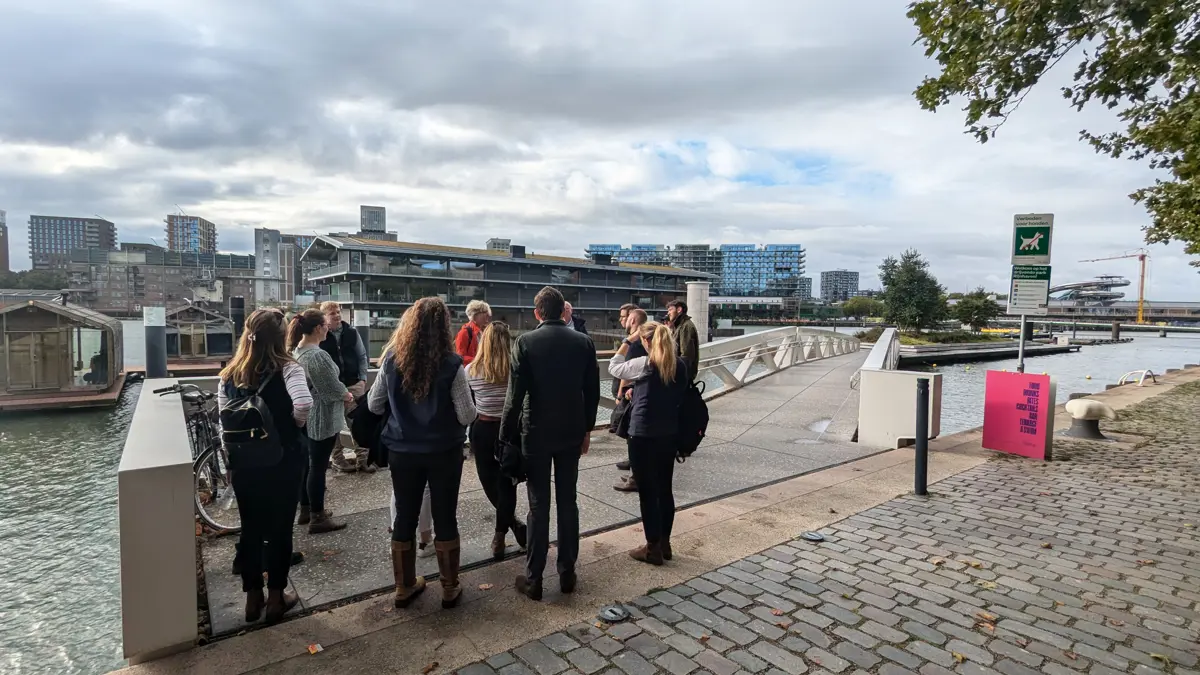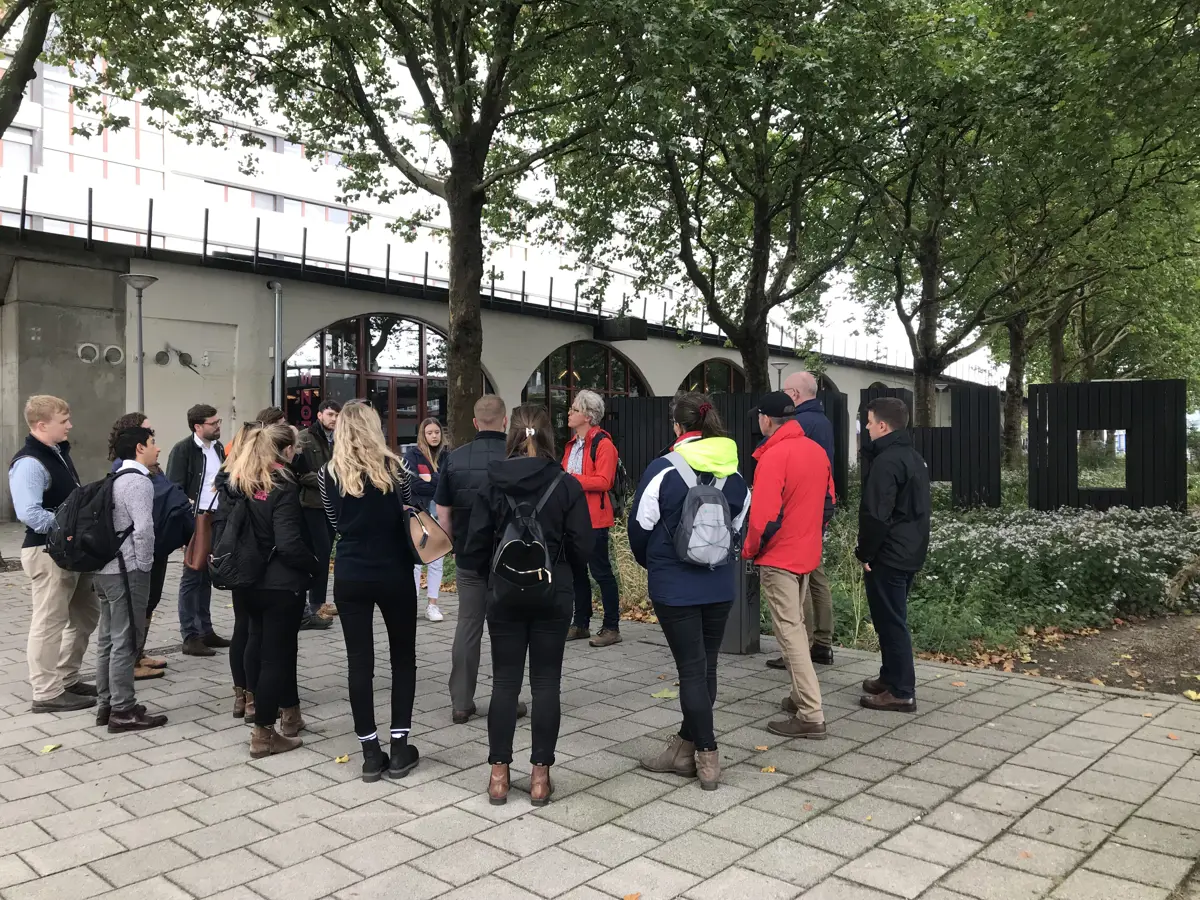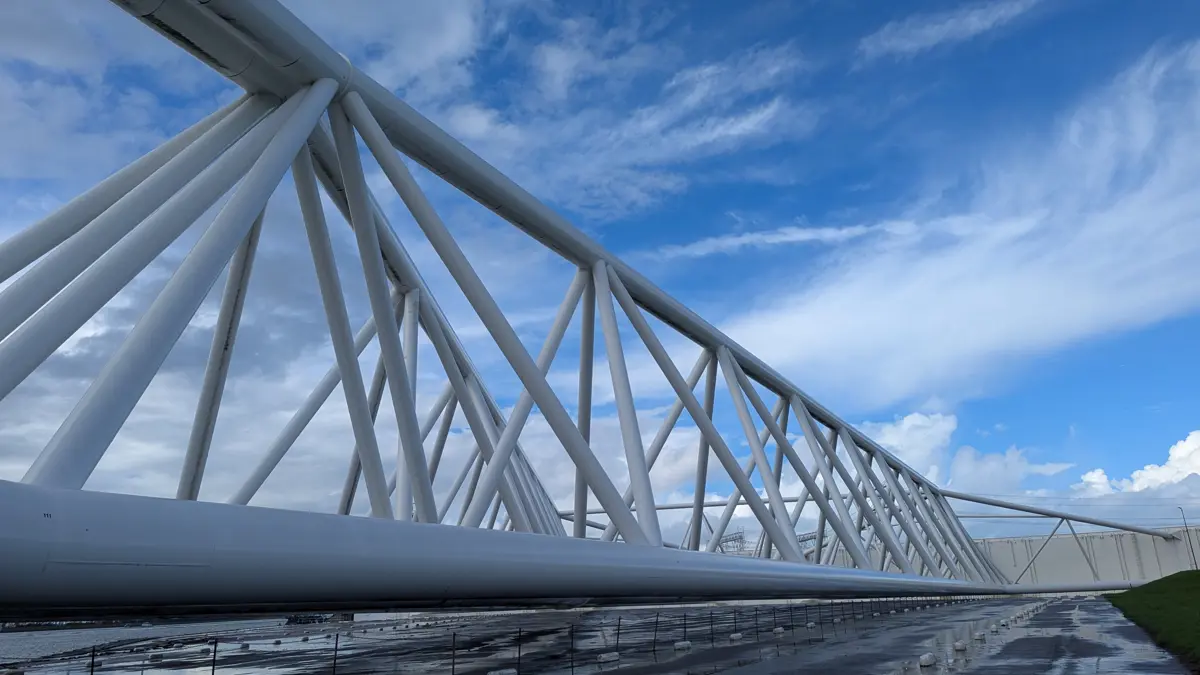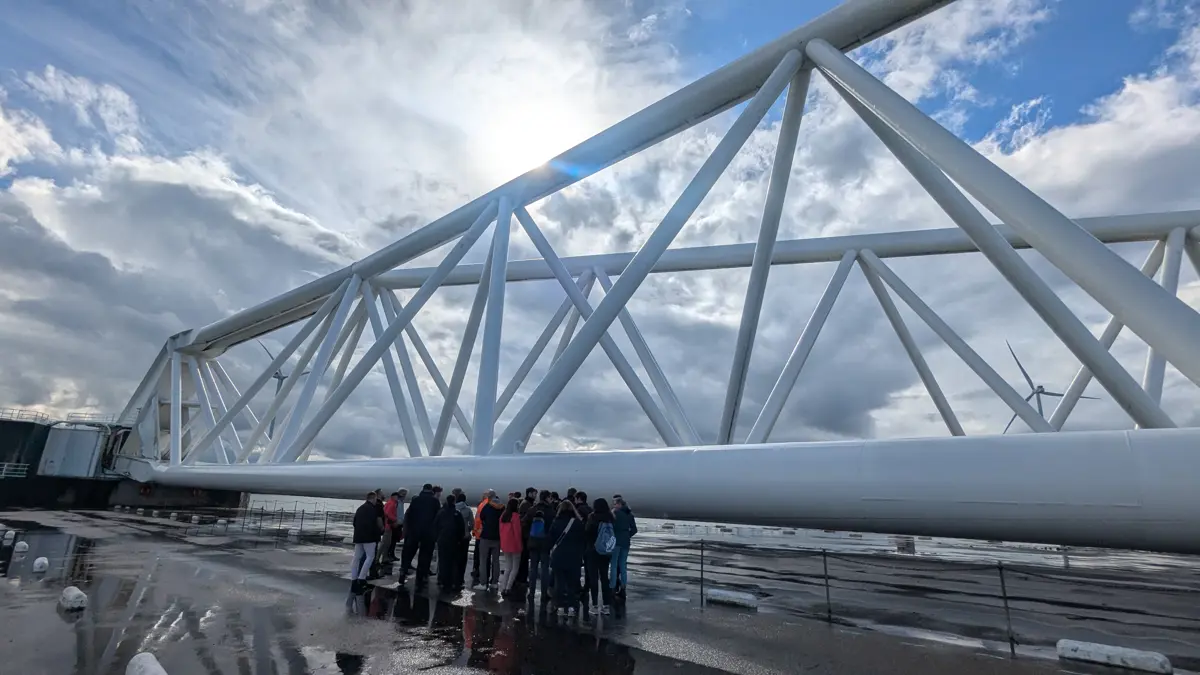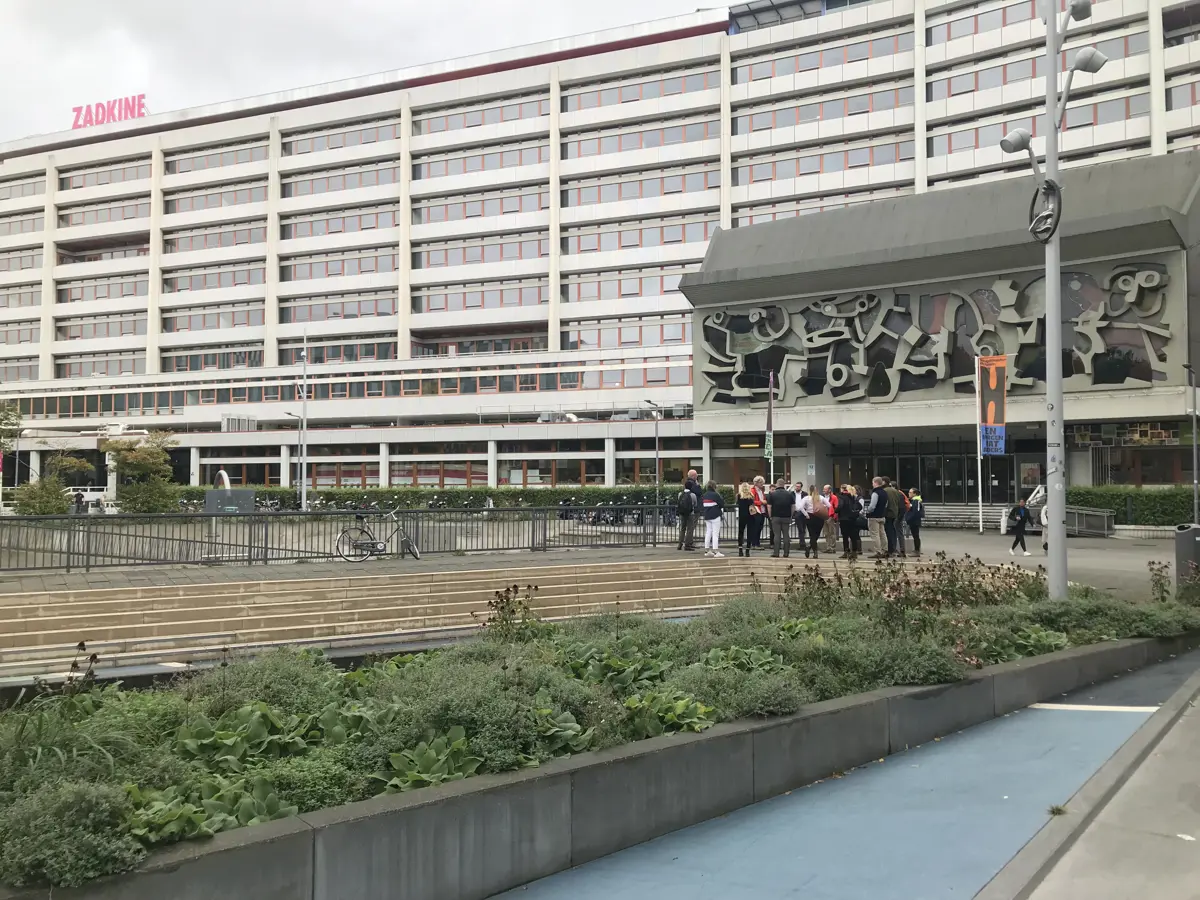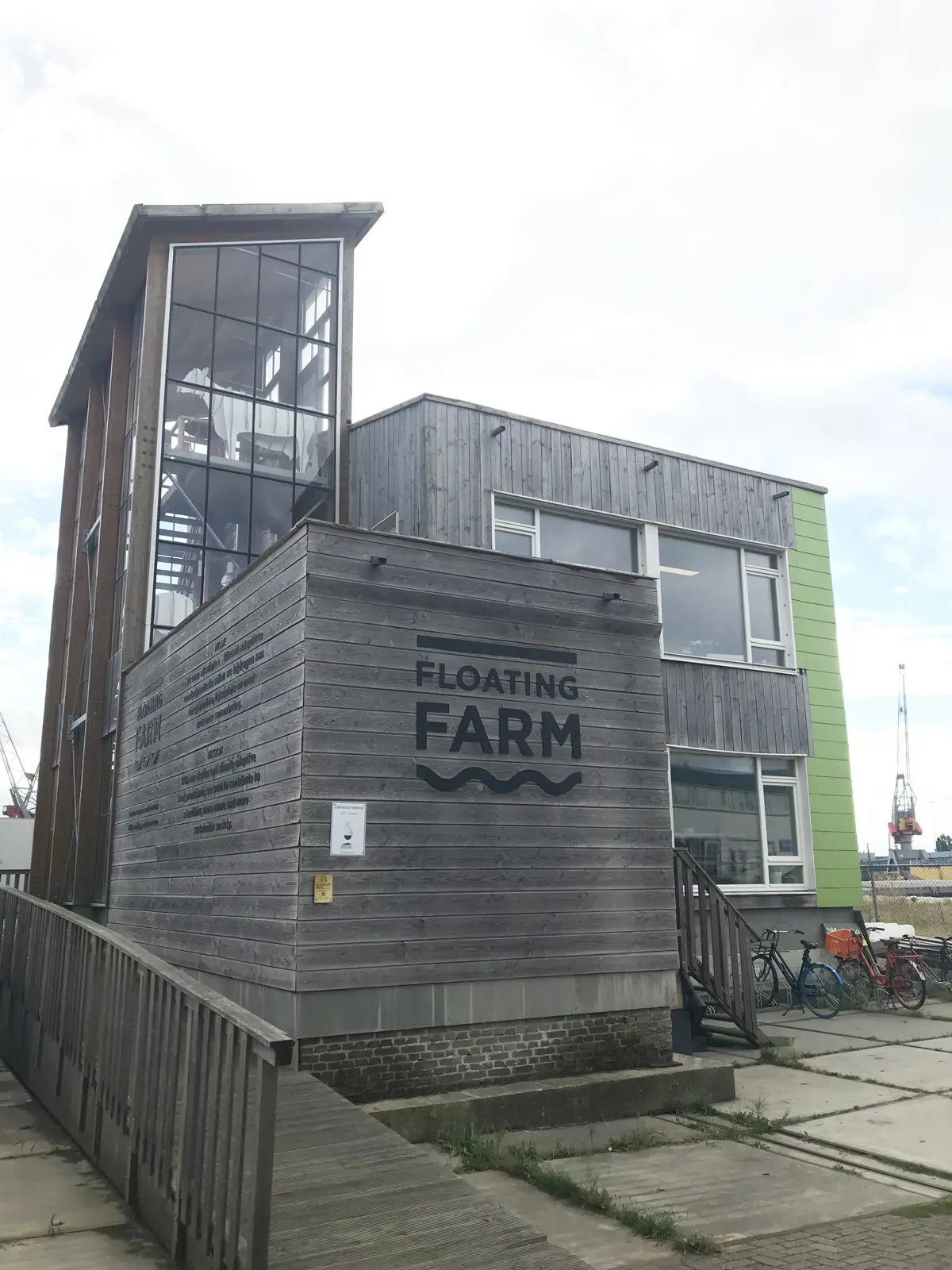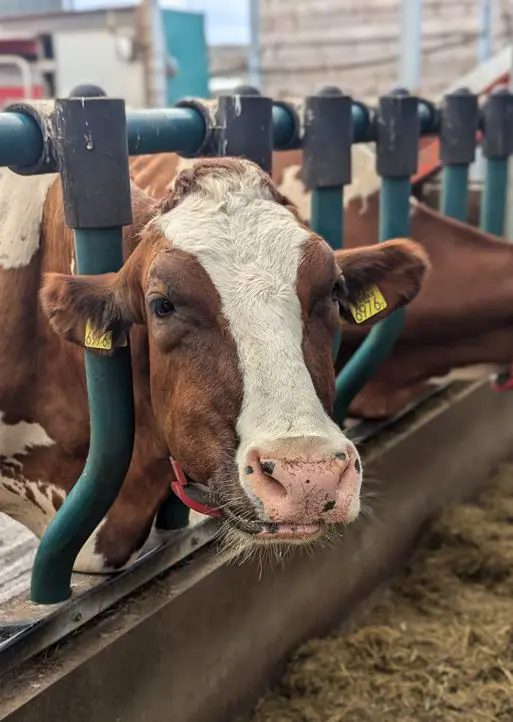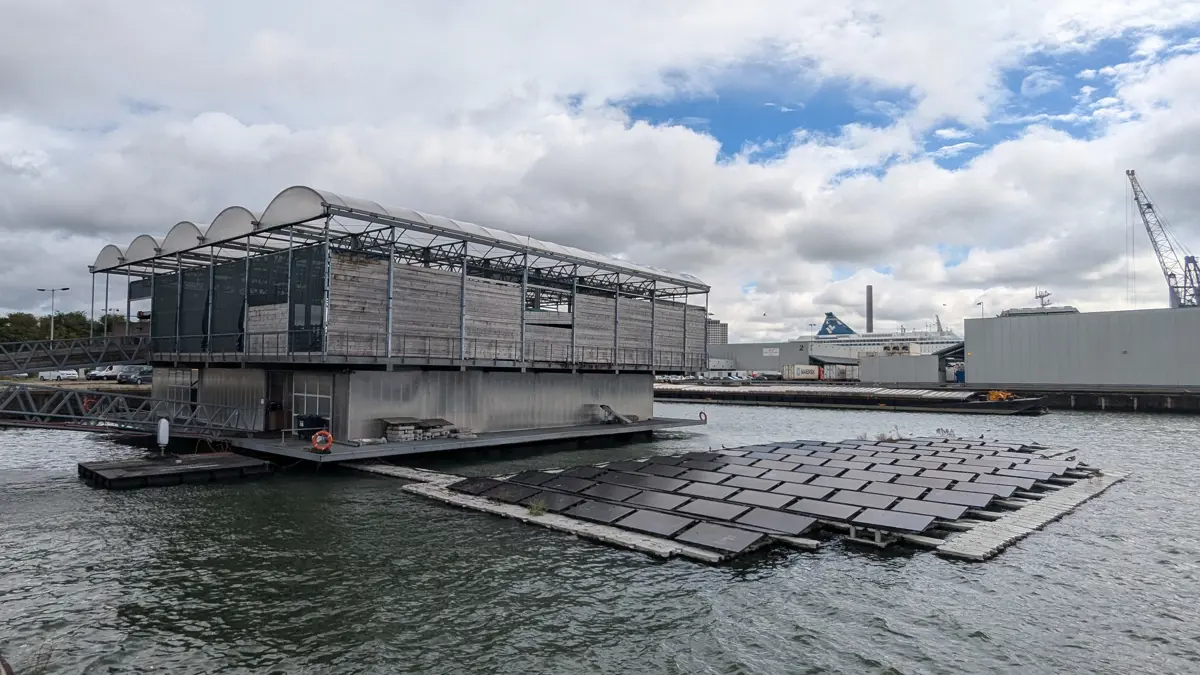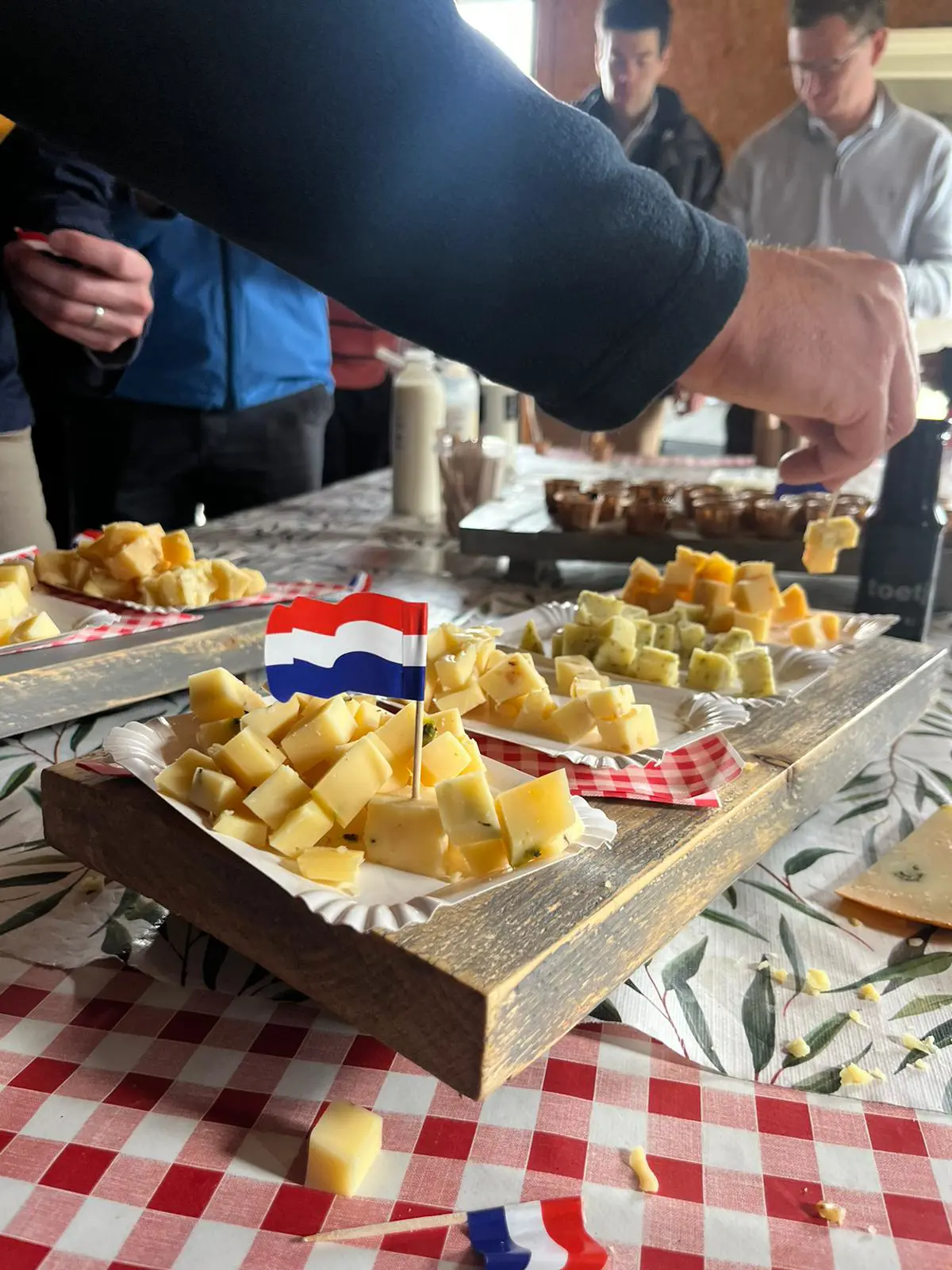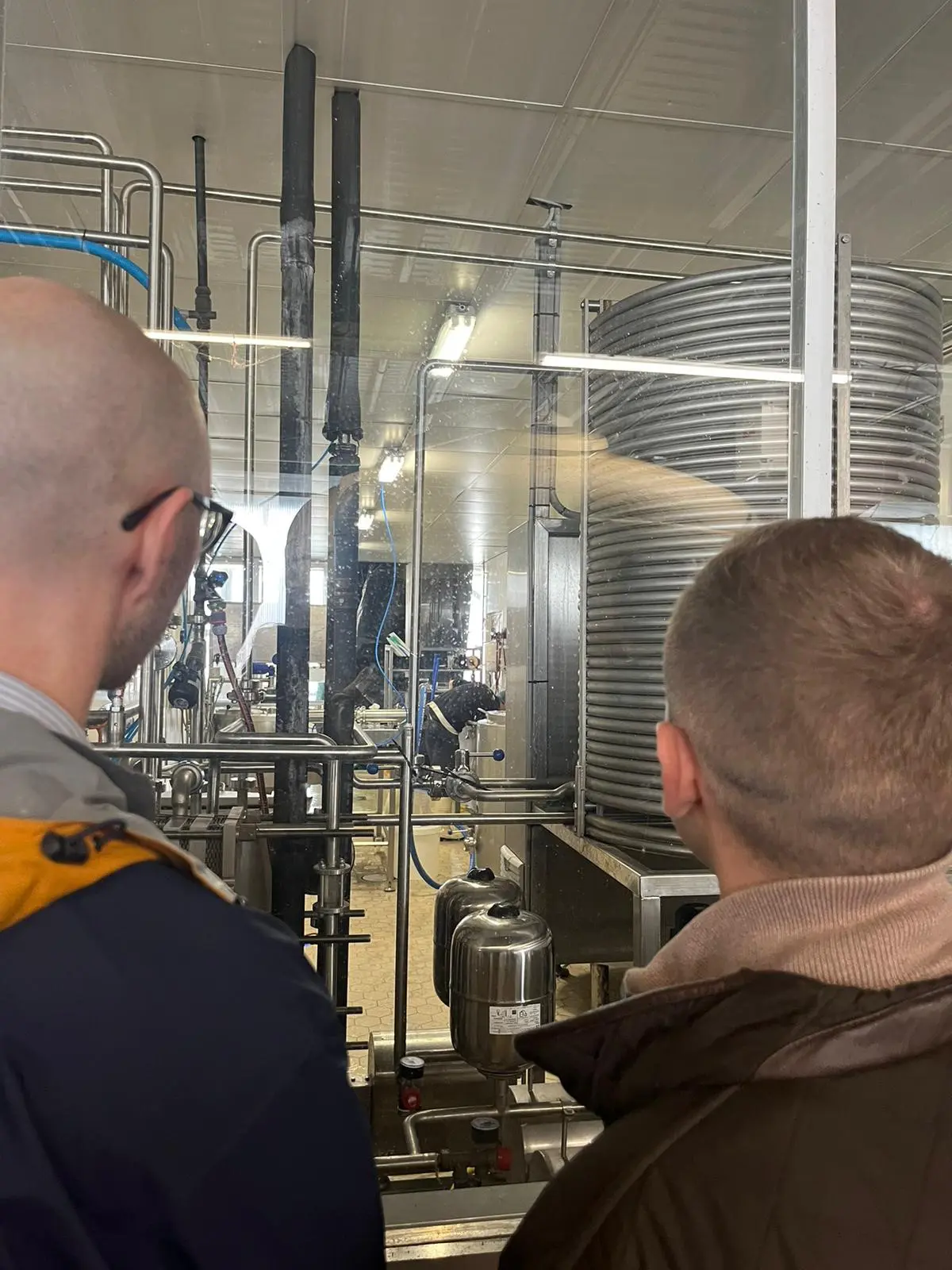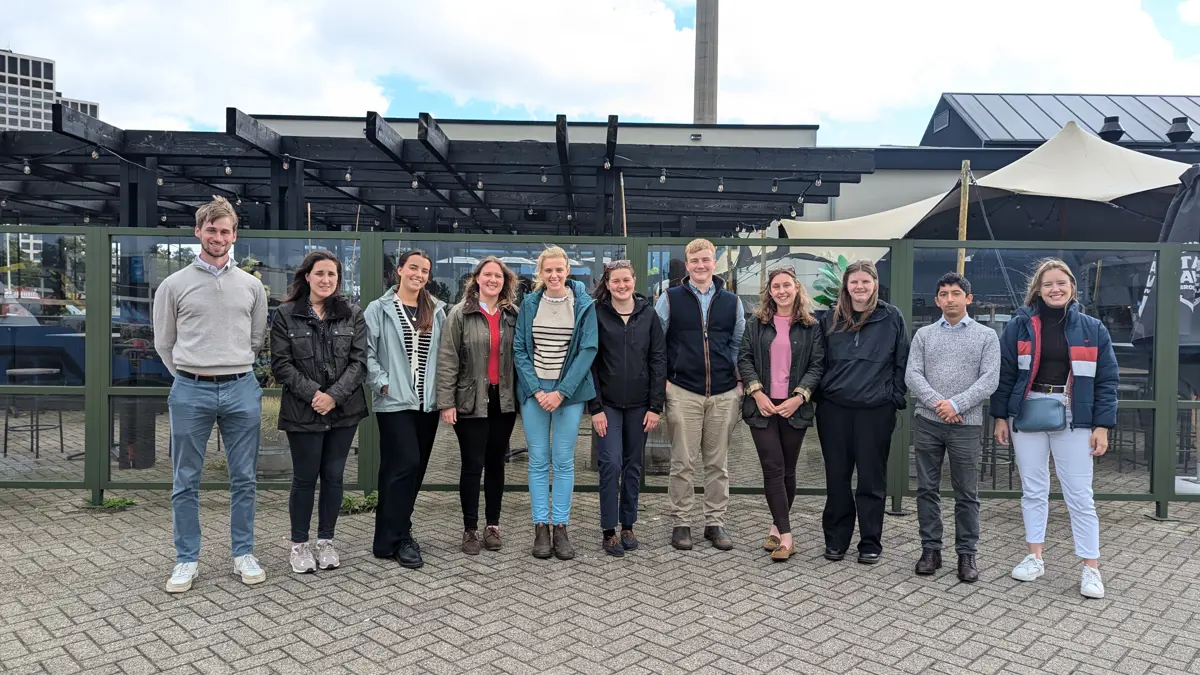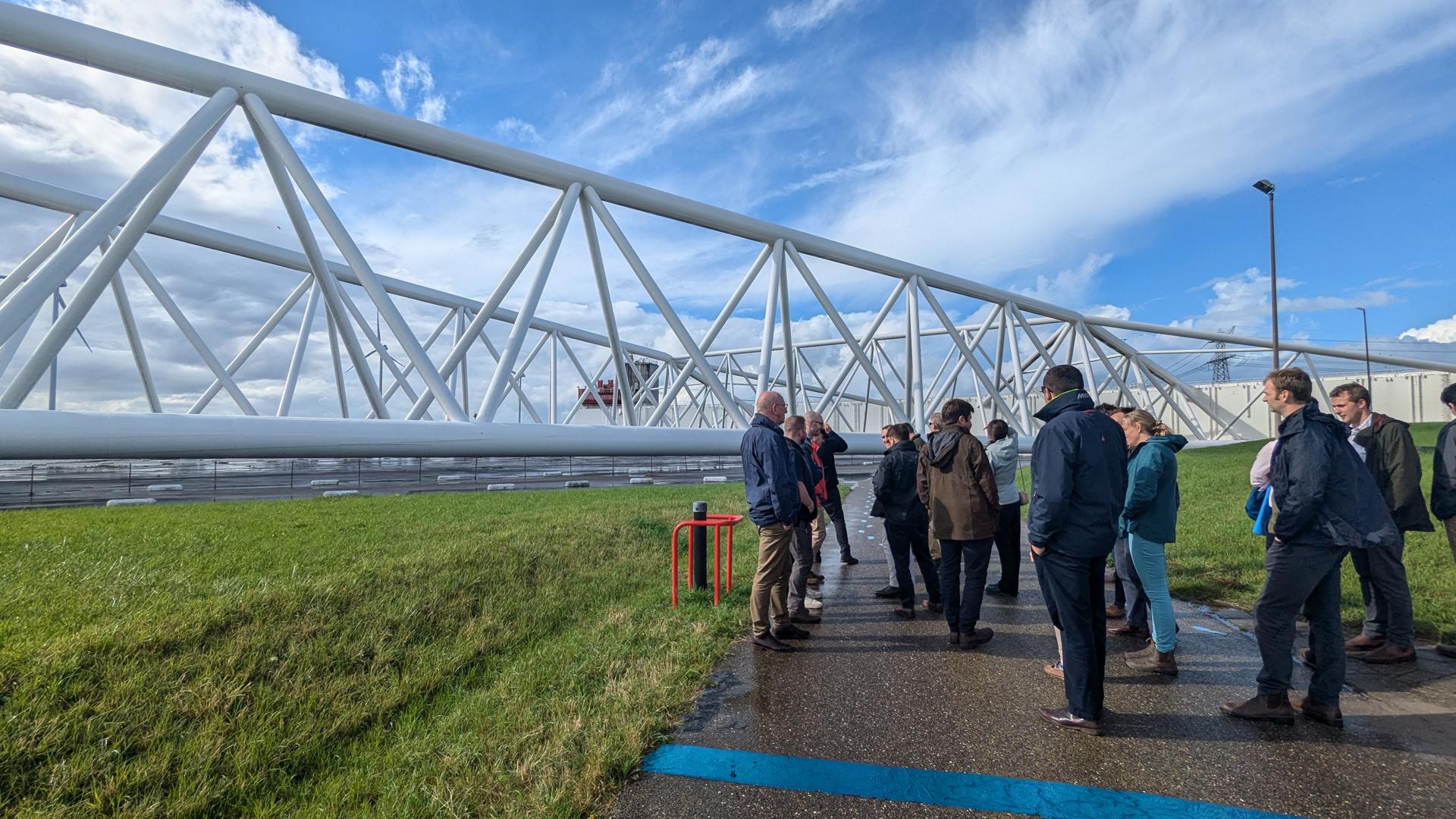
How Rotterdam's Water Management Inspires Future Farming.
Thu 03 Oct 2024
Our recent study tour to Rotterdam proved to be an eye-opening experience. With over 50 professionals from our Agricultural Business Consultancy (ABC) division, ranging from newly recruited Graduates to seasoned Partners. The trip was an invaluable opportunity to learn from one of the world’s most innovative cities, renowned for its proactive approach to land, water and food management.
In the heart of the Agricultural Transition, we are faced with increasing challenges relating to land use, diversification, and sustainability. Rotterdam, a city that lies largely below sea level, has long faced these same challenges. Their response has been nothing short of visionary, with a focus on creating solutions that not only protect the land but also contribute to global food security and reducing agriculture’s carbon footprint.
Rotterdam has become a global leader in water management, a particularly pressing issue for the city due to its geographical vulnerability. The Delta Works is an immense system of dams, sluices, and storm surge barriers designed to protect the Netherlands from flooding, while also providing a model for water management that balances land protection and food security. For us, this raised important considerations about how to manage water levels in flood-prone areas and make more effective use of land drainage. The potential to apply these principles in farming, either through more sophisticated rainwater harvesting techniques or flood-resistant farming infrastructure is vast
Beyond flood protection, the city has introduced innovative urban water retention systems, like water squares that store excess rainfall to prevent flooding. These urban solutions have great potential in rural settings as well, where water management is critical to both crop and livestock viability.
Floating Farms – Sustainable Agriculture at its Best
One of the highlights of our trip was a visit to the Floating Farm, a marvel of sustainable farming and a brilliant example of how to rethink food production in a space-constrained, urban environment. This floating dairy farm operates on water, reducing land usage, while also embracing circular farming techniques, recycling waste into resources and minimising its carbon footprint. The farm produces its own energy and collects rainwater to sustain operations. The Floating Farm’s model of integrating agriculture into urban areas while maintaining sustainability inspired us to consider how similar concepts could be adapted to rural farming back home.
Our visit to the Floating Farm included a cheese tasting, where we reviewed produce from the farm, like cheeses and yoghurts, but also learned about the farm’s methods of reducing resource waste in dairy production. After, we had lunch at the local brewery who work closely with the farm exchanging brewers' grain for dairy produce.
It was wonderful to see new graduates mingling with more senior members, exchanging ideas, and forming new connections. Experiences like these remind us why we love working in such a collaborative and supportive environment. Our knowledge sharing across our teams and division is certainly a strength of Brown&Co and one we take very seriously to provide the best advice to our clients.
If you would like to find out more about joining our team or our graduate programme, which is accepting applications until 29th November 2024 you can view all our current vacancies on our careers page.
Keep updated
Keep up-to-date with our latest news and updates. Sign up below and we'll add you to our mailing list.
 Brown&Co
Brown&Co
